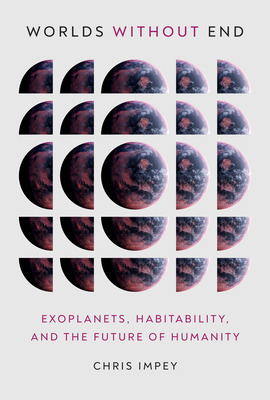When considering the long-term survival and sustainability of human civilization, two developments hold significant implications. Firstly, humanity has been recklessly depleting resources, causing species extinctions, and degrading essential elements for life on Earth for centuries. Secondly, advancements in the science of discovering habitable planets outside our solar system have opened up the possibility of establishing human civilization beyond our increasingly inhospitable planetary home. In his latest book, “Worlds Without End: Exoplanets, Habitability, and the Future of Humanity,” Professor Chris Impey takes readers on a thrilling journey through the frontiers of astronomy and the search for planets that can potentially support life. In this episode of Bridging the Gaps, I speak with Professor Impey about the science behind finding habitable exoplanets, the evolution of space exploration, and the prospect of humans inhabiting a planet far away from our solar system.
Chris Impey is a University Distinguished Professor of Astronomy at the University of Arizona. He has made significant contributions to the fields of observational cosmology, astrophysics, particularly in the area of exoplanet research. His expertise and passion for the subject have led to many publications and appearances in documentaries, news outlets, and popular science programmes. He has won numerous teaching awards and authored textbooks and many popular science books.
We begin our discussion by examining the historical perspectives on exoplanets, planets beyond our solar system. We then delve into the discovery of the first exoplanet and explore the various methods that scientists have employed to detect these far-off worlds. The Kepler Space Telescope played a pivotal role in this field, and we explore how the James Webb Telescope presents new opportunities for advancing exoplanet research. The diversity of exoplanets is astounding, with variations in size, composition, and orbital characteristics. We delve into these differences and their implications. Additionally, we thoroughly examine the concept of habitability, including how scientists are studying the atmospheric characteristics of these alien worlds. We also touch on the intriguing possibility of orphan planets – large planets without a star – that may sustain habitability characteristics without a sun. We then contemplate the prospect of travelling to these distant planets and potentially establishing human settlements there. We explore the magnitude of such a journey and the challenges involved in interstellar travel. Lastly, we consider the possibility of extraterrestrial life in the universe.
Complement this discussion with Search for Exoplanets: A Discussion with Professor Sara Seager and then listen to “The End of Astronauts”, Robotic Space Exploration and Our Future on Earth and Beyond with Professor Martin Rees”


Connect With Us